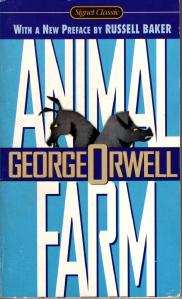The Holodomor was a catastrophic man-made famine in Ukraine in 1932-1933. At the time, Ukraine was part of Joseph Stalin’s Soviet Union. Millions of people died in what Ukraine and several other countries now consider a genocide.
Not widely known then or now, the Holodomor is the subject of a haunting 2019 movie that became available this summer on Amazon Video: Mr. Jones.
Gareth Jones was a young Welsh journalist (in his 20s) who had achieved a measure of renown for interviewing Adolph Hitler in February 1933. The following month Mr. Jones traveled to Russia seeking to interview Joseph Stalin and to find the answer to a question that few were asking: how could the Soviet Union, in the midst of the worldwide Great Depression, afford its vast program of industrialization?
Mr. Jones did not get an interview with Stalin, but he found the answer to his question. It was an answer that no one wanted to hear: Stalin was exporting grain from Ukraine, the breadbasket of the Soviet Union, and elsewhere, that should have been used to feed its people. Mr. Jones includes heartbreaking scenes of starvation.
Why didn’t anyone listen to Gareth Jones, and a few other newspaper reporters who also knew the truth about the famine and its cause? A large part of the reason was the power of the New York Times and its “Man in Moscow” – Walter Duranty, who won a Pulitzer Prize in 1932 for his favorable reports about the Soviet Union, especially their first Five Year Plan. Duranty directly contradicted Jones’ reports.
From a review of Mr. Jones in the Washington Post, July 31, 2020, ‘Mr. Jones’ and the deadly consequences of shoddy journalism:
“Mr. Jones” is, in many ways, a film about Duranty … Duranty comes in for a beating — justifiably portrayed as a hack and an apparatchik for a loathsome regime; shown living in a literal den of iniquity, hosting drug-addled orgies to gather blackmail material for his friend Stalin[.]
Mr. Jones is a reminder of a troubling past. From a review in the New York Times, June 18, 2020, ‘Mr. Jones’ Review: Bearing Witness to Stalin’s Evil:
More than anything, “Mr. Jones” is an argument for witnessing and remembrance. … No one came to Ukraine’s rescue, despite the attempts of those, like Jones, who tried to expose the facts about the Soviet Union. In the early 1930s — with the West eyeing a potential ally in the nearing war — the truth was something few wanted to hear.
The 1932-1933 Holodomor did not stand in the way of the United States establishing diplomatic relations with the Soviet Union. President Woodrow Wilson had severed relations with Russia in 1917 when Stalin’s party seized power in the early days of the Russian Revolution. Four presidents later, Franklin Roosevelt was influenced by Duranty’s glowing reports from Moscow, and established diplomatic relations with the Soviet Union in the fall of 1933.
One of the intriguing aspects of Mr. Jones is that the movie is punctuated with scenes of George Orwell writing Animal Farm, a fable about the Soviet Union from the Russian Revolution into the Stalinist era. Animal Farm was published in 1945 at the close of World War II, ten years after the death of Gareth Jones, but it is likely that his life and reporting influenced the book. George Orwell (1903-1950) and Gareth Jones (1905-1935) may have known each other. One of the themes of the book is the famine on Animal Farm and starvation among the animals after their leader, the pig Napoleon (intended to represent Stalin), sold grain and other products from the farm to raise money for an industrialization project (construction of a windmill). And the farmer in Animal Farm is named Mr. Jones.
I recommend Mr. Jones. And Animal Farm. Both contain timely lessons for today. Indeed, timeless lessons about evil, power, and truth.
Related earlier posts on this blog: The Holocaust, Aleksandr Solzhenitsyn.
This is one of three posts about Mr. Jones:
1. The Holodomor (this post)
2. Why you should watch “Mr. Jones”
3. Unmasking the cult of Stalin


Read a out this
LikeLike
Read about this?
LikeLike
Look up Britain exporting half of Ireland’s agricultural produce during the Irish genocide of 1845 -1850.
Stalin had good tutors.
LikeLike